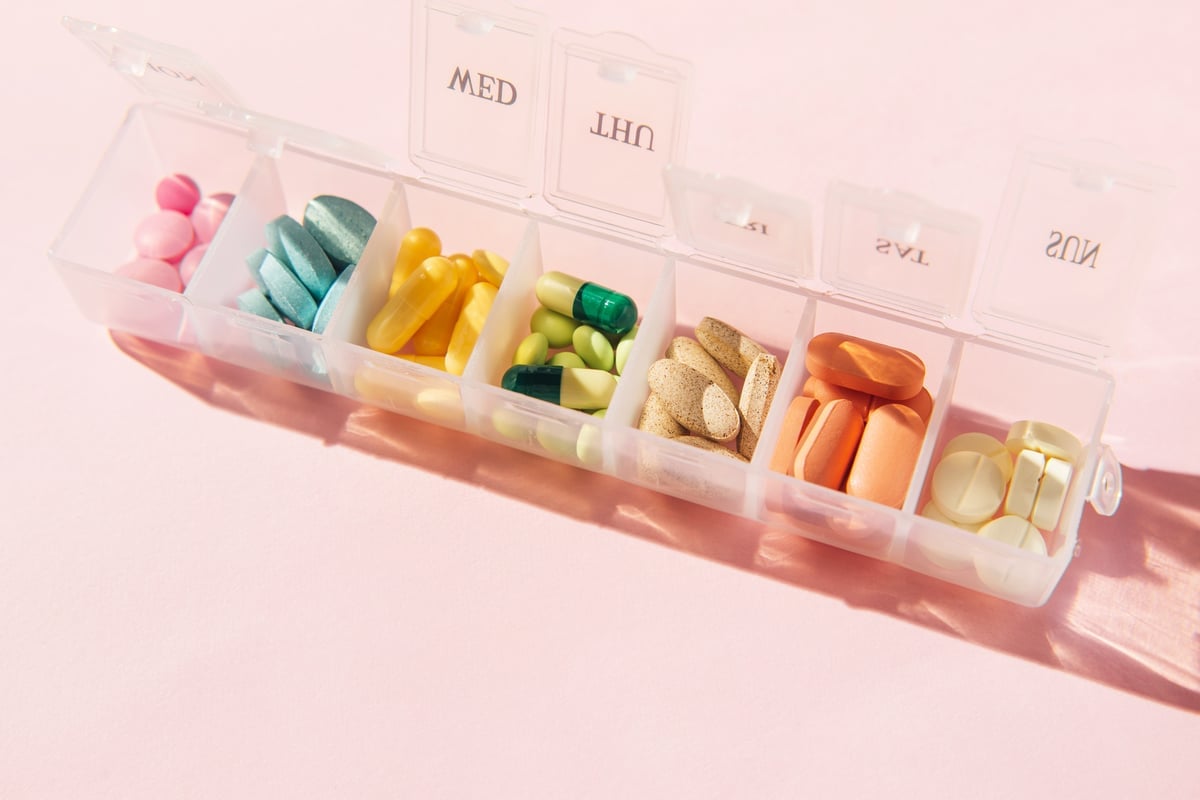
As prescription GLP-1 diabetes medications continue to dominate headlines (and discussions about weight loss), a new trend has emerged in the wellness industry.
A surge of supplements, claiming to offer similar effects to these medications, have flooded the market, prompting medical professionals to raise concerns about their safety and efficacy.
GLP-1 receptor agonists, initially developed for type 2 diabetes treatment, work by mimicking a naturally occurring gut hormone that regulates blood sugar and appetite, and for this reason have been prescribed off-label for weight loss.
Watch: Healthy Food Relationships. Article continues after the video.
The popularity of these medications triggered a wave of alternative products. In September last year, Kourtney Kardashian's wellness brand Lemme launched "GLP-1 Daily," marketed as a natural alternative to prescription weight-loss drugs.
The product's primary ingredients include lemon fruit extract, saffron extract, and red orange fruit extract — a far cry from the components of the prescription medications.




























































































